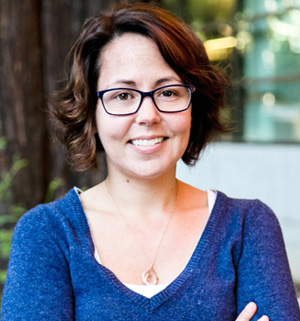Campus News
Alumni Weekend Teach-Ins, 2016: self-persuasion and woolly mammoths
Attention, Slugs. Legendary social psychologist Elliot Aronson and MacArthur “Genius” award–winning evolutionary microbiologist Beth Shapiro are about to call their Teach-Ins to order.


Attention, Slugs. Legendary social psychologist Elliot Aronson and MacArthur “Genius” award–winning evolutionary microbiologist Beth Shapiro are about to call their classes to order.
These two academic heavy-hitters are going to deliver engaging lectures at this year’s Teach-Ins, an Alumni Weekend highlight that allows returning Slugs to go back to school, but this time there will be no pop quizzes, no final examination, just the thrill of learning for its own sake.
Aronson’s talk will be called “The Power of Self Persuasion: My 55 Years of Research in One Hour,” and Shapiro’s will be called “How To Clone A Mammoth.”
Both are at 2:30 p.m. on Saturday, April 30, at Oakes College—so it will be a tough decision to pick which to attend.
A joyful career
When asked to explain how he has remained in the social psychology field for five and a half decades (and counting), Aronson, one of the most preeminent social psychologists of our time, explained it away with one word: “Love,” he said.
“I love this field. This field is in a position to help us understand how to help people get along with each other better, reduce prejudice, understand how people can make these horrible mistakes, and how we can help people to learn to correct those mistakes.”
“Now that the physicists have taught us how we can destroy each other, it is the social psychologists who are in the position to teach us how to appreciate each other, like each other, and at least not kill each other,” Aronson continued. “That is a promise yet to be totally fulfilled.”
But Aronson will have quite a challenge when it comes to compressing his life and career into just one lecture. He conceded that he may have to go over the appointed time limit by five minutes or so.
Aronson, known for his storytelling skill, will likely talk about his two inspiring but temperamentally different mentors, Stanford University’s prickly and extremely exacting Leon Festinger and Brandeis University’s warm and humanistic Abraham Maslow.
He could say a thing or two about his ideas on “cognitive dissonance,” the mental gymnastics that people do for the sake of self-justification, or the way that hazing rituals tend to increase the hazing subject’s sense of loyalty and appreciation for organization that is doing the hazing. And he will likely talk about his concept of the “jigsaw classroom,” intended to increase cooperation and understanding among diverse groups.
A mammoth undertaking
When you attend Beth Shapiro’s talk, “How to Clone a Mammoth,” expect to be surprised and inspired, but don’t expect to come away from her discussion with a sure-fire a recipe that will help you go home and create your own tusk-growing furry pal from scratch in your backyard.
Shapiro is a leading authority on ancient DNA—how to recover it from fossils, museum specimens, and prehistoric remains buried in frozen tundra, and how to analyze it for clues to the evolutionary history of species and populations, both living and extinct. She has studied DNA from ancient populations of bears, horses, humans, and, yes, mammoths. But she is not a big proponent of “de-extinction”—the idea that scientists could use ancient DNA to recreate extinct species.
In How to Clone a Mammoth: The Science of De-Extinction (Princeton University Press, May 2015), Shapiro addressed the scientific and ethical challenges that would confront any effort to bring back extinct creatures.
Her Teach-In will be an opportunity to share her button-pushing ideas. “I hope to be able to break down some of the misconceptions about what is feasible to achieve, and what is likely to be achieved in the near-term, when it comes to de-extinction,” Shapiro explained. “People tend to be both frightened and intrigued by the idea that extinct species might be resurrected.”
“On one hand, de-extinction satisfies a craving for technical solutions to what most people recognize as an ongoing problem—saving living species from extinction,” Shapiro continued. “On the other had, de-extinction is often perceived as dangerous, perhaps because of the connection to science fiction. I’m looking forward to the chance to dig into this a bit, to explore why people are interested in, excited by, afraid of, even offended by de-extinction, while talking through the real science (not science fiction) behind the idea.”
Advance registration is highly recommended for either event. Seats fill up quickly.